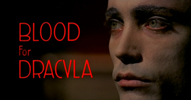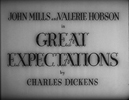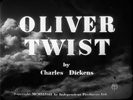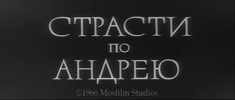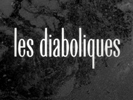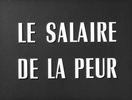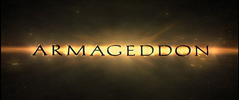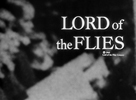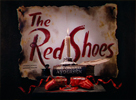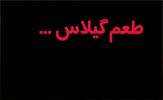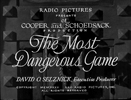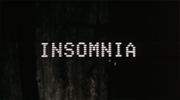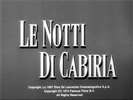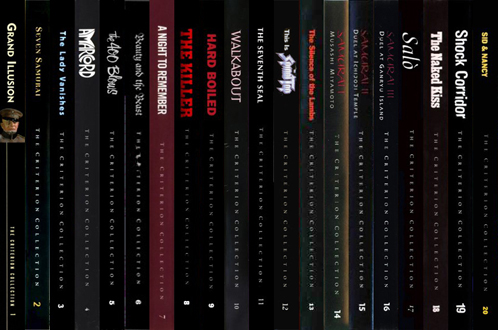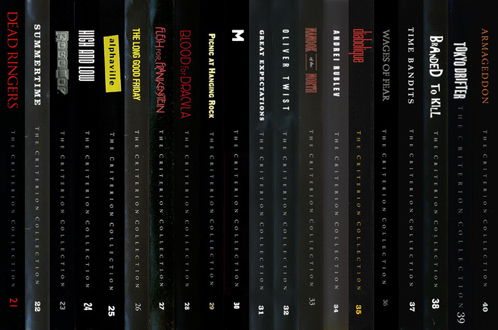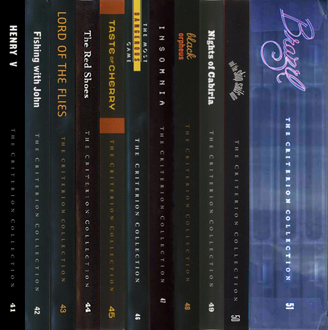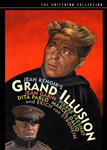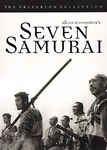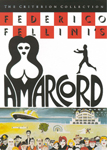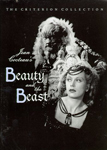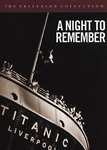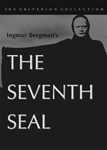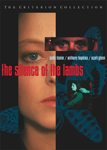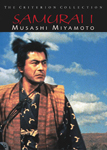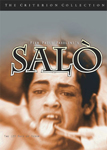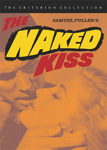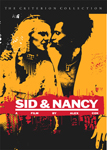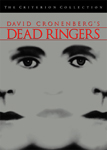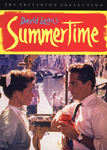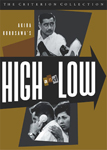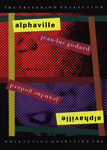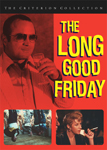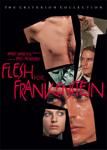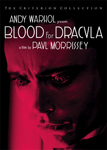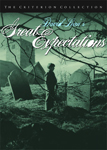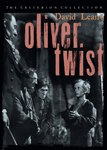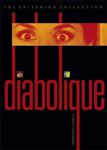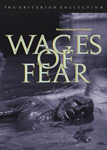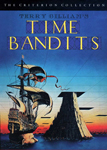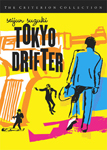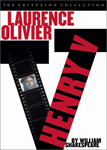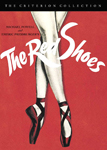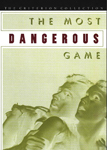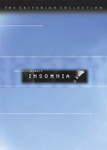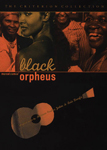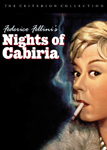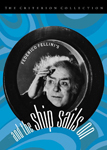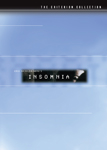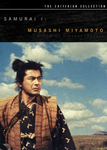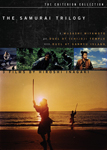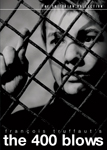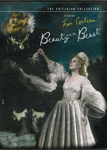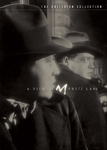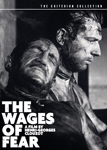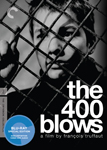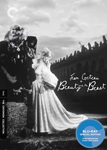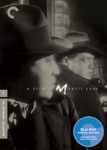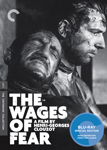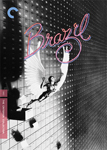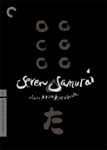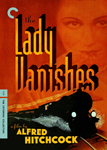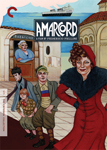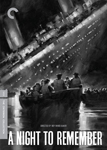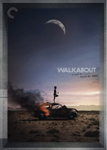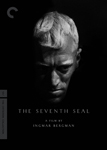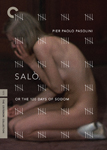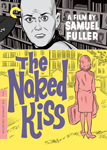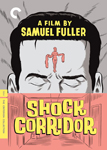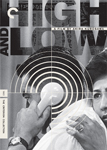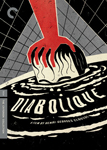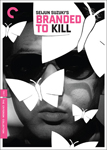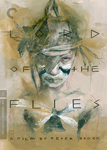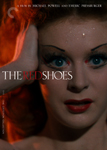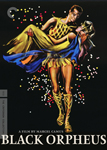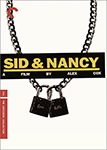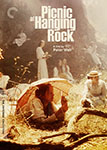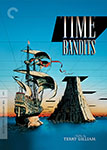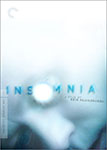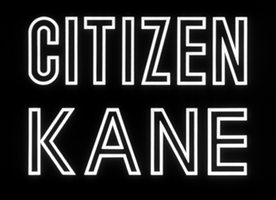
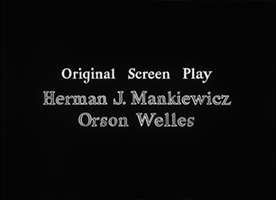
Winner in the category of WRITING (Original Screenplay) at the 14th Academy Awards, presented February 26, 1942 at the Biltmore Bowl, Biltmore Hotel.
The other nominees were:
The Devil and Miss Jones — Norman Krasna
Sergeant York — Abem Finkel, Harry Chandlee, Howard Koch, John Huston
Tall, Dark and Handsome — Karl Tunberg, Darrell Ware
Tom, Dick and Harry — Paul Jarrico
Opening of screenplay:
CITIZEN KANE
PROLOGUE
FADE IN
EXT. XANADU – FAINT DAWN – 1940 (MINIATURE)
1WINDOW, VERY SMALL IN THE DISTANCE, ILLUMINATED
All around this an almost totally black screen. Now, as the CAMERA MOVES SLOWLY towards the window which is almost a postage stamp in the frame, other forms appear; barbed wire, cyclone fencing, and now, looming up against an early morning sky, enormous iron grille work. CAMERA TRAVELS up what is now shown to be a gateway of gigantic proportions and HOLDS on the top of it — a huge initial “K” showing darker and darker against the dawn sky. Through this and beyond we see the fairy-tale mountaintop of Xanadu, the great castle a silhouette at its summit, the little window a distant accent in the darkness.
DISSOLVE
(A series of set-ups, each closer to the great window, all telling something of:)
2THE LITERALLY INCREDIBLE DOMAIN OF CHARLES FOSTER KANE
First line in film:
BETH Well that was definitely the best episode of Hoarders I’ve seen.
BROOM That’s a more profound joke than it seems at first.
BETH I was aware of that when I thought of it.
ADAM I found it exhaustingly theatrical. I recognize that it’s really got a lot of clever lines, and clever photography tricks, and clever acting, and it’s affecting… but it’s so different from modern movie-making as to be foreign and antique.
BETH You’ve seen it once before?
ADAM Yeah, once before.
BROOM I don’t think I could agree with “antique,” because that suggests that it’s part of some historical style, but I don’t think that this is in the style of any other movie.
BETH Before or after. It seems like it’s entirely its own thing.
ADAM There were a lot of things here that reminded me of other things, although some of them I guess are movies yet to come. But it reminded me a lot of Gone With the Wind, and that sort of bigger-than-life… You know: “Romance! Drama! Epic!” So maudlin that it’s almost daring you to not have a straight face. But maybe that’s just my small-minded cynical naturalistic modern sensibility.
BROOM I didn’t have a reaction anything like that, so I’m trying to figure out what you might be responding to. What scenes? Give me an example.
ADAM Every time someone was backlit with dramatic, dusty light.
BROOM I see, the whole tone.
ADAM Or a thunderstorm every time anyone was interviewed. Some of the camerawork is really clever, but awfully melodramatic.
BETH It just makes you notice it.
ADAM Coming in through the ceiling like that. Twice.
BROOM Three times if you include going back out.
ADAM So many of the clever transitions were like, a thing dissolves into another thing that’s totally different from it but looks just like it. Like the swinging doors dissolve into the newspaper plates. There were a bunch of those.
BETH And that tired you rather than exhilarated you?
ADAM Well, maybe it’s just that tonight it tired me. Maybe in a different sort of emotional mood I’d feel differently about it. But at the moment it was just… I mean, no wonder I had thought it was longer than 119 minutes.
BROOM It’s very dense. It must be one of the movies most dense with incident. It compresses so much content — not just narrative time, but perspectives and things that it’s trying to address. So it does feel very long.
ADAM Don’t get me wrong: I didn’t not enjoy it. Although I was fatigued by it, there are so many rich little details that are cool. And clever. Like the scene at the very end when the cockatoo screams in your face.
BROOM Well, your objection is the one that I think critics of the time held over it: that it was technically showy in a way that didn’t necessarily further its cause. But to me, part of what’s exciting and satisfying about this movie is the particular combination of this technique and this material, which is very ambitious even separated from the technique. To me it’s stimulating; it doesn’t feel like they’re fighting with each other.
ADAM I’m not saying that I didn’t think it was successful. I’m saying that it felt like I ate an entire fruitcake at one sitting.
BROOM I feel stimulated by exactly what you’re saying was fatiguing to you. Beth and I are reading our way through the George Smiley novels of John Le Carré, and the first one — Tinker, Tailor, Soldier, Spy — was striking to me the first time I read it, and again recently when we reread it, for being hard to follow. It doesn’t belabor anything; it makes it difficult to keep track of what’s significant. But as a result of having to turn your brain up to that level, it has an intensity. What you glean out of it seems somehow richer than just some genre spy novel. Whereas in the third one, which we’re reading now, he’s being a lot more obviously careful not to lose the reader, and as a result the whole thing seems thinner. And this to me worked on the same principle. The fact that there’s so much shadowplay and trickery put me in a state of having to run, and then the blood is pumping and you feel that something exciting is happening to you as you experience the non-trickery part of it, the material itself. Which I think is thrilling exactly because as a result, the ambition of what it’s trying to be about, which is pretty grand, works. At least for me. You can have this movie that’s about the meaning of life, or “who is a person?” — it works because the audience is put into this state of being drawn through a haunted house and things are jumping out at you. It intensifies your experience of what’s there. So I didn’t feel fatigued. Except for maybe in that haunted house sense of “Whoa! This is really intense.” It didn’t feel too long. But I guess it has to do with how sleepy a person is.
BETH It does, because I know that in previous viewings I have felt that it was a slog, and “I know I’m supposed to like this but.” But this time I completely did like it. Partly because I’m reading a biography of Orson Welles, and I’m drawing parallels. I was connecting with it, not on the level that you’re talking about, but just sort of analyzing Orson’s psychology.
BROOM I think I had the best experience of it, then.
BETH You probably did.
BROOM This was probably my best experience ever watching it. I got goosebumps and felt overwhelmed by what it was saying.
ADAM It could have used more levity and moments of exhaling. I guess it had those, but they weren’t really coded that way.
BETH It didn’t have many.
ADAM Like the scene with the dancing girls I’m sure is supposed to feel like a moment of relaxation…
BETH I don’t know, I think it’s supposed to be ironic. It’s grim.
BROOM I think it’s supposed to have a feeling of claustrophobic good cheer, and you see it in Joseph Cotten’s face: “I’m at the party, but…”
ADAM Oh. I thought maybe there was supposed to be some relief in that “fun,” but it didn’t really feel that fun to me. And I was going to say maybe it doesn’t feel that fun to me because seventy years have gone by. But maybe really it’s just not fun.
BETH Yeah, it’s not.
ADAM It’s fun like Edgar Bergen and that little girl.
BROOM If you take it at its word and its tone, it’s a very grim movie. It’s almost a kind of ghost story-ification of a biographical movie. It takes the idea of investigating a person and makes it gothic. It’s upsetting!
ADAM It has kind of a Masque of the Red Death quality.
BROOM Yeah! I was going to say Poe.
ADAM A room lit by horrible cross-cutting stained glass.
BROOM I think it ends on the “No Trespassing” sign at the end because —
BETH That was great; I had not made anything of that in prior viewings. Or I just didn’t remember it.
BROOM There’s no trespassing on the heart.
BETH On the soul.
ADAM So in terms of innovation: is this the first time in movies that you see a man crazily crashing around a room destroying everything?
BETH I was thinking about that too, because we just watched The Room…
BROOM When we were watching The Room and he destroyed a room badly, I thought, “I hope this doesn’t discolor our upcoming viewing of Citizen Kane. But apparently it did.
BETH I couldn’t help it!
ADAM When we saw this in college I remember talking about how when you see his first marriage dissolving, it’s the first time you have a montage of anecdote, essentially, being used to convey dramatic narrative.
BROOM Maybe. I don’t know if it’s the first time.
BETH It’s definitely referred to all the time.
BROOM It’s a very iconic sequence. I think I got this from the Roger Ebert commentary that’s on the disc — or maybe somewhere else: that Welles didn’t truly innovate a lot of this stuff, he borrowed it, but he borrowed from such widespread sources that he consolidates a lot of what had been avant-garde technique into this one movie. It showcases so much invention that had been in 20s and 30s cinema that it ends up feeling new.
ADAM Like what?
BROOM I don’t remember because I don’t remember the source of this comment. But things to do with the lighting, the staging, the extreme constrasts. The deep focus. Strange camera movements that take you from one space to another space through an intermediate space. The ghostly quality of the camera’s relationship to the subject.
ADAM I was thinking of the scene where he’s in the hall giving the speech running for governor, because of course we just saw that last year in The Great McGinty, in all those crowd scenes.
BROOM That’s true.
ADAM But here of course you’re in the back of the theater, there’s that big Hitler poster of him… it was turned up to eleven.
BROOM The elevenness of it is this Romantic, gothic tone that covers the whole thing. I know that Orson Welles generally liked that for his radio plays…
BETH He liked it for everything.
BROOM … because it’s intense. And for me it works. Maybe it’s a taste thing, but for me it goes beyond my own “taste” and self-image: I really get transfixed by that kind of intensity. The threat of it! There’s a kind of scariness to it.
ADAM I’m not saying it didn’t work; I’m just saying I wanted to get up in the middle.
BROOM Which you did. Which you were free to do. So we’re here to talk about the screenplay.
BETH I was gonna say.
ADAM It’s full of bon mots. That aren’t necessarily relevant to the story. I guess the most famous one is the woman in white on the ferry, which is, you know, a poem in six words, if you will, just sort of strewn there for no reason.
BROOM Well, I think for a very clear reason.
ADAM For atmosphere.
BROOM It’s directly related to the subject of the movie.
ADAM Well, it’s not narrative.
BETH It’s thematic.
ADAM Yes.
BROOM The screenplay is designed to be returned to and studied and seen more than once, and on a second or third viewing, that anecdote becomes one of the oblique explanations that the movie offers for Rosebud, which it never gets to address overtly: what are we really saying, for him to have been dreaming on this sled? This ferry story is an explanation of how these things can function psychologically. I mean, if you watch it from the beginning there are lines in almost every scene that turn out to sort of be coded lines for the second-time viewer about what you’re going to understand the movie really to be about.
ADAM Right, but which are also memorable and striking in their own right.
BROOM Of course potentially it all works for the first-time viewer, because you’re gathering this outlook, the philosophical perspective of the movie, and you hear people saying all these things, so that you’re suitably prepared to find out what “Rosebud” means, at the end. In the first scene, a reporter says, “Maybe it’s a horse that he bet on… that didn’t come in!” A variety of things like this are said. What does the woman say in the last scene? Someone says something at the very end…
ADAM “Something he lost…”
BROOM Right. “Maybe it was something he lost… Maybe it was something he couldn’t get.” That’s what the story about the woman on the ferry is: “you’d be surprised what sticks in a man’s mind.”
ADAM I’m not saying it’s not related to the theme, I’m just…
BROOM You’re quoting Roger Ebert, who came and made a speech about that when we were in college.
ADAM Is that why that’s stuck in my head? All right, fine.
BETH You guys saw him?
BROOM We saw Siskel and Ebert talk together, which supposedly was something of a rarity because they didn’t really like each other, and they gave sort of parallel speeches from opposite sides of a stage.
ADAM I don’t remember this. Though apparently I do remember this.
BROOM Here are a few things I remember about it. It was only a year or so before Siskel’s death. The theme they chose to talk about was scenes in movies that are not explicitly necessary.
ADAM Is this where I got the Fargo thing, from this event? It wasn’t a thing we saw on TV?
BROOM Yes. They each talked about scenes that contribute to a movie spiritually without being a plot necessity. I don’t remember exactly the thesis statement, but it was something to the effect that that’s the essence of movies, being given these moments that don’t have to happen, where you don’t know why they’re happening but in a larger sense you feel why they’re happening because you’re in movie space.
BETH I like that.
BROOM I think the woman on the ferry was Ebert’s example, and Siskel’s example was the scene from Fargo where she meets with the guy from high school…
ADAM Gordon.
BROOM … who turns out to be sort of delusional…
ADAM I think Gordon is his name. If I’m wrong you can correct me in brackets in a snotty way.
BROOM No, I won’t do any such thing. [ed: I don’t need to — readers can click this link to watch the Mike Yanagita scene and decide for themselves.] Here’s the other thing I remember from that event: Ebert said “You know, you can go across the street to the Coop and buy—” and Siskel started laughing and said, “Coop? Like a chicken coop? It’s the CO-OP, Roger!” And Ebert lit up, and turned immediately to the audience and said “What do you guys call it?” And everyone shouted “The Coop!” And Siskel was sort of shame-faced. It was like that’s what Ebert lived for.
ADAM Well, I guess that stuck with me without my knowing where it came from. But anyway, Orson Welles is sort of showing off at the end by giving everyone their best little witticism in the credits.
BROOM They seemed to be alternate takes.
ADAM And what could be showier than that last credit?
BROOM The faux modesty of putting “Kane” at the very end of the credit list?
ADAM The humblebrag.
BROOM But then he has a proper card for “Direction — Production”.
ADAM That just makes it even snottier. “Oh, well, acting, psssh.”
BROOM But the big director credit is on the same screen with the photographer, which I think is a genuine sharing of glory.
BETH Was this the first movie that did that thing with clips of each character at the end?
BROOM Oh, I don’t think so. I mean, I don’t know. It was certainly standard form for trailers.
BETH Even in the 30s?
BROOM I don’t know. I’m just so used to it.
ADAM I think Coming to America was the first.
BROOM Back to what I want to say about the screenplay. The impetus would seem to be reading about famous or powerful people like William Randolph Hearst, and speculating about them. The fun of talking about Michael Jackson and how weird he is: “what’s going on on that crazy estate he lives on?” Or Gwyneth Paltrow and her “ridiculous” divorce announcement. And then in a writerly, humanist, artist’s way, saying: “if we’re going to speculate, let’s try to be as real as possible about what’s going on behind this public figure.” And yet the brilliant thing about it is that it doesn’t answer that explicitly. It occupies itself with the business of trying to get through and be real. Beth, when you said during the opera scene that you liked that she wasn’t hilariously bad — I feel like that’s the spirit of the whole movie: we’re not going to laugh at any of this stuff. We’re going to make it gothic, and then it’s going to be up to you to feel out what’s behind it that makes it so, figure out what is the ghost in the closet.
ADAM Not that it’s subtle: three different people say “What he wanted was love.”
BROOM That’s right; it’s very direct and simple about its psychological outlook, in what it does offer. But it rings true as far as it goes. And the kernel of it, that scene with his parents, leaves a lot of questions unanswered — to me, at least; maybe I’m missing things — about why they are each behaving the way they do in that scene.
ADAM His mother is an abused wife who is cold for her son’s protection; the father is a drunken ne’er-do-well who mishandles them.
BROOM So you take the mother’s words at the end of the scene at face value: “I’m sending him away because you are likely to beat him.”
ADAM As opposed to what?
BROOM Well, I think we’re supposed to be chilled when she says “I’ve had his bags packed for a week” and is stony.
ADAM I think she is a monster, but an understandable monster.
BROOM You think she’s the victim of abuse and that has made her into stone.
ADAM That’s sort of how I read it. I’m sure there are other ways to read it.
BETH I hadn’t read it like that before, but I like that interpretation. It makes her more sympathetic and understandable.
ADAM As opposed to that she’s just a witch?
BETH It’s partially that Agnes Moorehead looks like a witch that makes it hard to sympathize with her.
ADAM In fact I can only think of her as a witch, since she played Endora.
BETH But your interpretation makes a lot more sense, actually.
BROOM But it follows on a scene of the father ineffectually pacing around and fairly sympathetically saying “Why does my son have to go away?”
BETH But he also seems a little bit drunk.
BROOM Clearly drunk.
ADAM And then when the fifty thousand dollars is mentioned, he drops his protestation and says, “Well, I hope it’s for the best.” I’m sure he’s not a bad guy, but…
BROOM I’m not saying “You guys need to be nicer to him; I love the dad,” but the movie is all about the love that Kane needs because of this separation.
BETH It’s clear that he had more of an affinity for his mother. “Mom, why aren’t you coming with me, mom?”
BROOM He loves Pop too; he runs over to him.
ADAM Leland says later, “He never loved anyone but himself. Well, I guess he loved his mother.” Are you supposed to take that at face value? That his childhood really was this halcyon place? Or is it just a fantasy, the way the woman on the ferry is a fantasy?
BETH It’s his memory, which is infused with…
ADAM But if he really was beaten… if it really was as bad as his mother implies.
BROOM I don’t get the sense that that’s the case, from that last scene. I do think it’s implied from her last line that he has beaten her and that she cannot conceive of raising her son in this environment. But there’s something darker going on with her than just a kind of beaten-down resilient pragmatism.
ADAM Oh, I agree. She’s coded as a total creep. The way she stares out the window like death. It’s super-creepy.
BROOM And yet he as a child seems basically cheery. I guess maybe you could read into the fact that his make-believe in the snow is some sort of battle. But we don’t really know. And that’s what the “No Trespassing” of the whole screenplay is.
ADAM They seem to be a darker version of Scarlett O’Hara’s parents.
BROOM I don’t remember how Scarlett O’Hara’s parents are portrayed.
ADAM Her father is sort of a drunken, sentimental Irishman, and her mother is a chilly, elegant Charleston dame.
BROOM Do we see them for more than one scene?
ADAM You see the father a lot. Maybe it’s just me, but to me this movie has strong impressions of Gone With the Wind.
BROOM I haven’t seen that at all since I was a teenager.
ADAM It also has strong Gatsby qualities. But it’s sort of a haunted house Gatsby, as you said.
BROOM Yes, it’s related, but in Gatsby the presentation is different because the audience and the narrator are somewhat drawn into the potential glamour of this way of life, whereas here the entire pageant is about how he’s trying too hard and protesting too much.
ADAM Yeah, you’re right. The subject matter is the same but the psychological outlook is different.
BROOM This time while watching, I was thinking: “And why shouldn’t he want to be loved? Who in this story does love him? He is very lonely.” I guess this is where the Orson Welles parallels become complex.
BETH They’re all over this movie.
BROOM Because the movie has a very scolding, cautionary-tale attitude toward the impulse to try to buy love. But it doesn’t present an image of what he could have done instead. It sort of says that having been set on this path, this emotional need inside him was always going to express itself this way, which wasn’t going to work.
ADAM Well, Susan seemed like she could legitimately love him; she was very nice to him in the first scene, even though she didn’t know who he was. That was sort of the sweetest scene between any two people in the whole movie. And when she turns into a harridan, it’s disappointing.
BROOM She only shrieks like that in the stress of having been made into an opera star, which is artificial for her. But that “sweet” scene when they’re in her apartment together: the scene doesn’t miss an opportunity to have her say something really stupid.
ADAM Oh yeah, she’s clearly a moron.
BETH “Is it an elephant?”
BROOM Or later when they’re at Xanadu and she says “What time is it in New York?” and he says “11:30” and she says “At night?”
ADAM When he’s dressing her as the opera star, it felt like Vertigo to me.
BROOM But that scene in the apartment is a sweet scene, because he says he was on his way to a warehouse of his mother’s stuff, looking to recapture his own actual emotional life, and so her childlike simplicity feels to him like a connection… and then he immediately invests it with “what will I buy you? How will I give you fame and glory?” And poisons it. The script is very determinist about that. It doesn’t say “here’s where he could have gone right; here’s where he made a mistake.” It’s all imposed on him at the beginning. Although when she says “you never gave me anything that I actually wanted” — when he does tricks to cheer her up in her apartment, it is sort of an actual act of generosity. Although maybe we’re supposed to see that as trickery; he’s just trying to impress.
BETH To seduce.
BROOM Trying to get another person to think he’s cool.
ADAM I felt pained watching this thinking that we’ll never get to see a remake starring Philip Seymour Hoffman. It struck me overwhelmingly, at the end, that this would have been quite a role for him.
BROOM I don’t think this needs to be remade. You saw that April Fools’ joke about Keanu Reeves.
ADAM I didn’t see The Master, but you did, right?
BROOM Yes, and I guess it did have some connections. There Will Be Blood, actually, had more in common with Citizen Kane, though.
ADAM That was another movie that I felt was so hard to actually sit through because it was so gnarled with style. But that’s not as good as this.
BROOM That’s a movie that I found harder to take than this — though I really liked it and admired it and was glad to sit through it — but I found that harder to take because it depended less on tricks: it spent longer periods letting us just soak in the uncomfortable atmosphere of a particular moment. Whereas Citizen Kane is such a screenplay movie; watching it feels like reading a screenplay, in some ways. And that’s what’s exciting about it: this unfettered freedom to have whatever next thought it wants.
BETH That’s interesting though, because it’s so directed. I didn’t feel at all like I was reading a screenplay, because it’s so visual.
BROOM I didn’t mean it feels like reading in that it’s as colorless as words on a page; I mean it moves around conceptually in a way I associate with reading.
ADAM You mean because it’s choppy, and it cuts back and forth between past and future?
BROOM Yeah, and I feel like its attention generally moves with a very advanced kind of freedom that I associate with the printed word. It’s creatively exciting to watch because it feels unfettered.
BETH That’s not really done now.
BROOM I don’t think it’s been done in very many movies. I mean, there’s a structure to it; obviously the script has been carefully worked through many times: they knew there would be sequences about his love life, his political career, the newspaper, Xanadu — and then they divided them up, and chose which order, and who’s going to talk about what, and which parts are going to be repeated… But still the flavor of how it’s constructed is that the mind skips around, through time and thematically.
ADAM I like that you’re introduced to him through a newsreel. I remember when I read American Pastoral, the structure was very striking. The first third of it is the main character as observed by Zuckerman. And he seems super-shallow, and he doesn’t understand why he’s supposed to think that this guy is so profound. It’s all the main character seen from the surface. And it’s only then that you pivot into the story and see him through his own eyes. It has this coiled structure, where the surface is first and then you come into the inside. I mention that not because I think there’s anything related here, but because that observation was a touchstone for me when I read it. Here, first you see him through the newsreel, which is this sort of impassive quote-unquote “objective” picture of his life.
BROOM And there’s nothing gothic or Romantic about the visual style or presentation.
BETH Although I think those handheld shots of him being wheeled around are pretty innovative and genuinely feel invasive.
BROOM Because it’s directly implied that these are paparazzi shots stolen from outside his gates.
ADAM “No trespassing”!
BROOM Watching that sequence, right at the beginning, I thought, “This screenplay is already more sophisticated than almost any other,” because it’s about how we think about people, and it starts by showing us a way of talking about people that we’re all familiar with, which the point of the movie is to improve upon — but it doesn’t write off the newsreel a joke; it’s densely full of information. By the time you get to the end of the newsreel, not only has it mapped out the whole story, but it’s told you a whole lot of genuinely interesting stuff.
ADAM That’s the only reference in the whole movie to his son’s death.
BROOM And to the source of his money, essentially. The newsreel is already exciting in that the movie is declaring that it’s going to be about a made-up major public figure, and filling in that outline. That the game of the movie is to hypothesize a “Citizen Kane” of great fame and influence. If I had lived in the time of William Randolph Hearst, some of what is impressive to me about this movie might not be, because I would really get that it’s a thinly veiled speculative biography of Hearst, whereas to me now it feels like a pure display of invention. And what a canvas to be painting on! It’s not a zone in which fiction is usually made. It’s like fictional news; it addresses itself to whole idea of public figures and makes up this stuff. It’s already exciting, just to be told a story that way. And then the newsreel projector runs down and suddenly we’re in this world of shadows where the real movie is going to take place. And I just now had the thought that maybe the haunted house shadowy quality is a visual analogue to what the movie is about, that everybody carries this shadow reality, their emotional self, while they’re going about their business.
ADAM Behind their newsreel self.
BROOM Yeah.
BETH Well, isn’t this kind of the first movie about Twitter? When he said “News never stops, it’s 24 hours,” I was like, “Yeah, you just invented Twitter.”
BROOM I don’t know what you mean.
BETH That instant information, and branding, were represented here.
BROOM The connection is that people on Twitter are fake versions of themselves?
BETH Yeah, that it’s self-representation.
BROOM I see, self-branding. I wasn’t sure if you were talking about the media itself. Since the movie is about newspapers.
BETH Well, and the drive to be the first person to share information.
ADAM Also it’s like Twitter in that it has a mosaic quality; that everybody has a different story about him, and none of them is the right story but they all overlap to form pieces of this larger whole.
BROOM This is what I was leading to: the movie by its style feels haunted by something, and that something is his emotional life, this inner life. Which we are sort of told we haven’t seen anything of, that these stories are just surface stories, though that’s not entirely true: we glean and get a sense, and, as you said, there are several scenes where people are very explicit about how what he really needs is love. But that too is their interpretation. The inner reality is always behind what we’re seeing, it’s implied, it’s like the atmosphere that lets you know that a house is haunted. So that atmosphere infuses the whole thing because he’s the haunted house, and his feelings, that he doesn’t actually say out loud — we don’t really know what he feels like, even though we can speculate.
ADAM Or if he knows what he feels.
BROOM Yeah: he doesn’t know what he feels like. That’s the meaning of the scene at the end where he pathetically trashes the room, because he knows he’s having some feeling and thinks that maybe he’s supposed to wreck all this stuff. It has that pathetic quality of trying to perform something for himself. But it just seems spectacularly bold to put that on paper and then try to put it on screen. And be effective! So that I can I sit here and watch and pick up on all this and know what they intended. You have to have…
BETH Conviction!
BROOM Yeah, to just do it and not stop.
ADAM To be clear: I think we could talk about this for another hour. Not that we will, Emma.
BROOM She’s not reading these anymore.
ADAM That’s a testament to the density and quality of the material. But ugh, I’m ready for a caper. A sorbet.
BROOM Next up is Woman of the Year, which I think ought to suit you.
BETH We’ve already got it. You can watch it right now.
BROOM There are just very few movies that try to be so…
ADAM So literary.
BROOM That so baldly try to say something true about life, on this scale. It’s an anti-genre movie. You were talking earlier about how writers begin by depending on genre stuff in their heads, to get themselves going, which reminds me of something else I wanted to say — I know I’m talking seven times as much as you guys are, but you should just cut in if you want to say something! —
ADAM That’s okay. We’re used to it.
BROOM You should have cut in then, too!
ADAM No, we just don’t have as many thoughts as you do.
BROOM When I was a kid, I understood Citizen Kane to be this mystery movie about a man who says a word at the beginning, and you don’t find out what it meant until the end, and it’s not what anyone thought! It’s a thing you’d never have guessed, even though it was there on the first page all along. And that was it. And that was plenty: it’s a great form, it’s very satisfying. And it was almost satisfying enough for me to enjoy watching the whole movie — even though it was a bit long and I might get bored in the middle, when we’re dealing with Boss Gettys or something, which really doesn’t have anything to do with Rosebud. But really, it was just like a children’s book about “The elephant’s been with us all along! Did you spot him on page 2?” And what’s wonderful about the screenplay’s use of that structure is that what I just described is a completely cohesive understanding of the movie; it is not at all a misunderstanding of the movie. On the first page when he’s a kid and he just has his feelings as a kid: that was the secret of his whole life all along, and nobody noticed it…
ADAM You should put a spoiler alert at the beginning of this entry.
BROOM I had it spoiled for me by a Peanuts cartoon.
BETH It was referenced a lot when we were kids. Rosebud was everywhere.
ADAM I agree. It was spoiled for me long before I’d seen the movie.
BROOM In some ways — in most ways — it’s not really a spoiler. You like the movie better if you know what it is. Because if you didn’t know that it was going to be a sled, when you found out, you’d probably go, “Oh… Why was it a sled?” And then be like, “Hm, I guess because when he was a kid was the purest time in his life, and he felt nostalgic for that; whatever.” Whereas if you know at the outset that that is the entire point of the movie, you’re able to enjoy it.
ADAM Probably, but it would be interesting to actually see the whole movie without knowing it. Because the question is: is anyone actually invested in the mystery of “what is Rosebud”? Obviously we’re not.
BROOM I’m saying, for a kid, that was a totally legitimate way to watch the movie. And it’s exciting! To see the lips saying the word, and nobody knows what it means, and the glass ball breaks — it’s all very spooky and expressionistic; and then we have those shadowy guys in that room saying, “Rosebud, his last word: what does it mean?” Of course you’re invested in the mystery.
ADAM And it has a noir quality, that they don’t find out but you do. “The truth can never be told.”
BROOM And in this respect too, the movie is like a ghost story. It’s like The Ring or something: they have to go to the haunted island to interview the last person who saw the ghost. And right before he kills himself he says two words: what was he hinting at? And the old lady in the shack in the woods: what did she see?
ADAM “Redrum!”
BROOM There was an Indian burial ground here!
BETH “Pay me a thousand dollars and I’ll tell you.”
BROOM You feel almost worried; it’s scary: when is the revelation going to come? And then it’s a worthy revelation: it’s the thing from the beginning, and he’s already dead, and it goes up in black smoke. So it’s great that that is legitimately how this movie works; that is right. And all this sophisticated stuff about marriages, about journalism, and friendships, about real politics, and fake politics, and crazy people who build estates for themselves — Michael Jackson, and George Lucas — is the distraction from the real thing, which is that everybody is a kid inside, everybody’s got feelings. And there’s no way for him to get back to that at the end; he’s too old and too isolated, and he’s about to die. That’s why I get chills now: because the thing that I thought as a kid is still right. The paradigm of “But no it’s a twist ending!” is still correct. And I don’t think the cinematic device of the twist, the cheap ghost-story twist, as a kid understands it, could be used for a more profound purpose than this. Where the twist is that your life is not about the thing that you think it’s about; it’s about the other thing, the thing that nobody is talking about because it was too mundane, the thing on the first page.
BETH So do you think this will become the number one movie again?
BROOM After Vertigo?
BETH Because really, Vertigo is not about life the way this is. This is definitely a better movie.
ADAM I haven’t seen Vertigo in a long time.
BROOM Well, I’m pretty sure it doesn’t win Best Screenplay.
ADAM I don’t think any Hitchcock movie is going to win.
BROOM Yeah, I guess this is better, but the total unreality of Vertigo can serve a purpose in talking about real life. I guess what’s thrilling about Citizen Kane is that it contains both. Vertigo is just the psychodrama, just the nightmare version of things.
BETH And our culture is pretty consumed with the appeal of the nightmare right now.
ADAM Wouldn’t it be interesting to see a remake of this where you could see it with all of the lavish spectacle that presumably audiences saw in 1941? This would have seemed like really crazy special effects.
BROOM It doesn’t feel like that to you now? It’s visually very exciting.
BETH It still feels like that to me.
ADAM Yeah, but it still feels old-timey, because it’s an old-timey movie.
BETH Do you think if we’d made it fill the whole width of the TV that would have helped you?
ADAM I don’t know.
BROOM I think this Blu-ray image looks so crisp and fresh, and the photography is so stylized, that I don’t have a sense of it being old. I mean, obviously I do, of course, in a way that I’ve forgotten about. I just don’t think about it anymore. Yeah, this is from the past. But I’m so comfortable with it. And I feel spoken to very directly by it. So I’m not at all attracted to the idea that anyone should do it again. But someone could do a close equivalent. The material of “a big man’s life” — you could do anything with that.
ADAM You’re not interested in seeing it done by Baz Luhrmann? With rap music?
BROOM I’m not much of a fan of Baz.
ADAM I’m genuinely curious to see what the New York Times has to say.
[we read the review]
BROOM I always like Bosley Crowther. I know that he wasn’t very well liked in his time or by other critics.
ADAM Yeah, that was a review you can be proud of.
BROOM Yes, he “got it right.” His quibble is with whether the film should have told us more about Kane.
BETH I think the fact that it didn’t tell us more is powerful.
BROOM So I really don’t know anything about Herman J. Mankiewicz. Do you, Beth, reading that biography? Not yet?
BETH No.
BROOM What I’ve heard is that Welles didn’t really write it; Mankiewicz did.
BETH That’s interesting to me because there are many parallels with Orson’s life. So my impression is that he at least tinkered with whatever was written.
BROOM Well, maybe I’m wrong about that.
Last line in film:
— Throw that junk in.
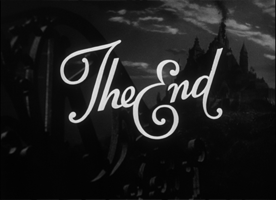
This is the only video footage I can find that seems to be from the Academy Awards ceremony. Selections from the radio broadcast audio are available on this page, but the presentation of Best Original Screenplay is not among them.
The acceptance speech (winners not present; accepted by George Schaefer, President of RKO Radio):
GEORGE SCHAEFER: Mr. Herman Mankiewicz called me today and asked if I would be good enough to step up here tonight and receive this in his behalf. I’m flattered, of course. I’d be happier if he were here personally to receive it. Thank you very much.
Here is a photo of the moment. Preston Sturges, last year’s winner, is presenting.
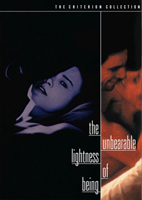 (out of print by 6/01)
(out of print by 6/01)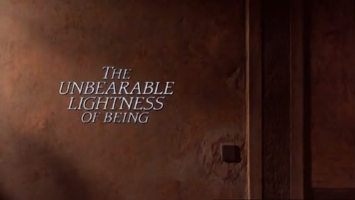
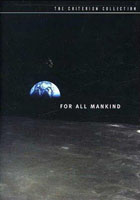 2009:
2009: 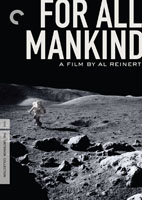
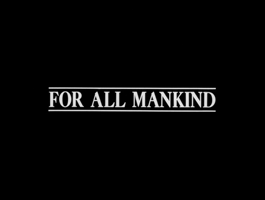
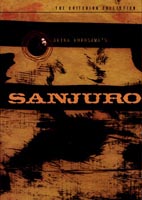 2007:
2007: 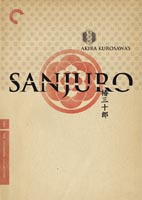
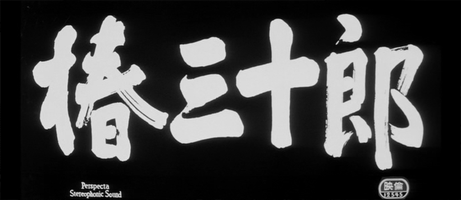
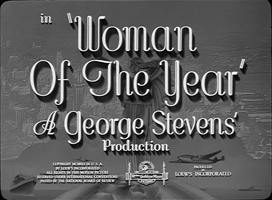
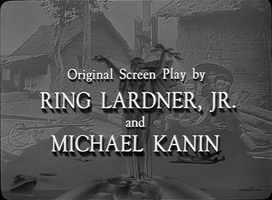
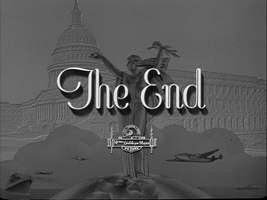
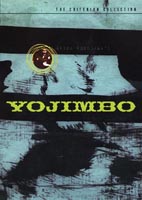 2007:
2007: 































